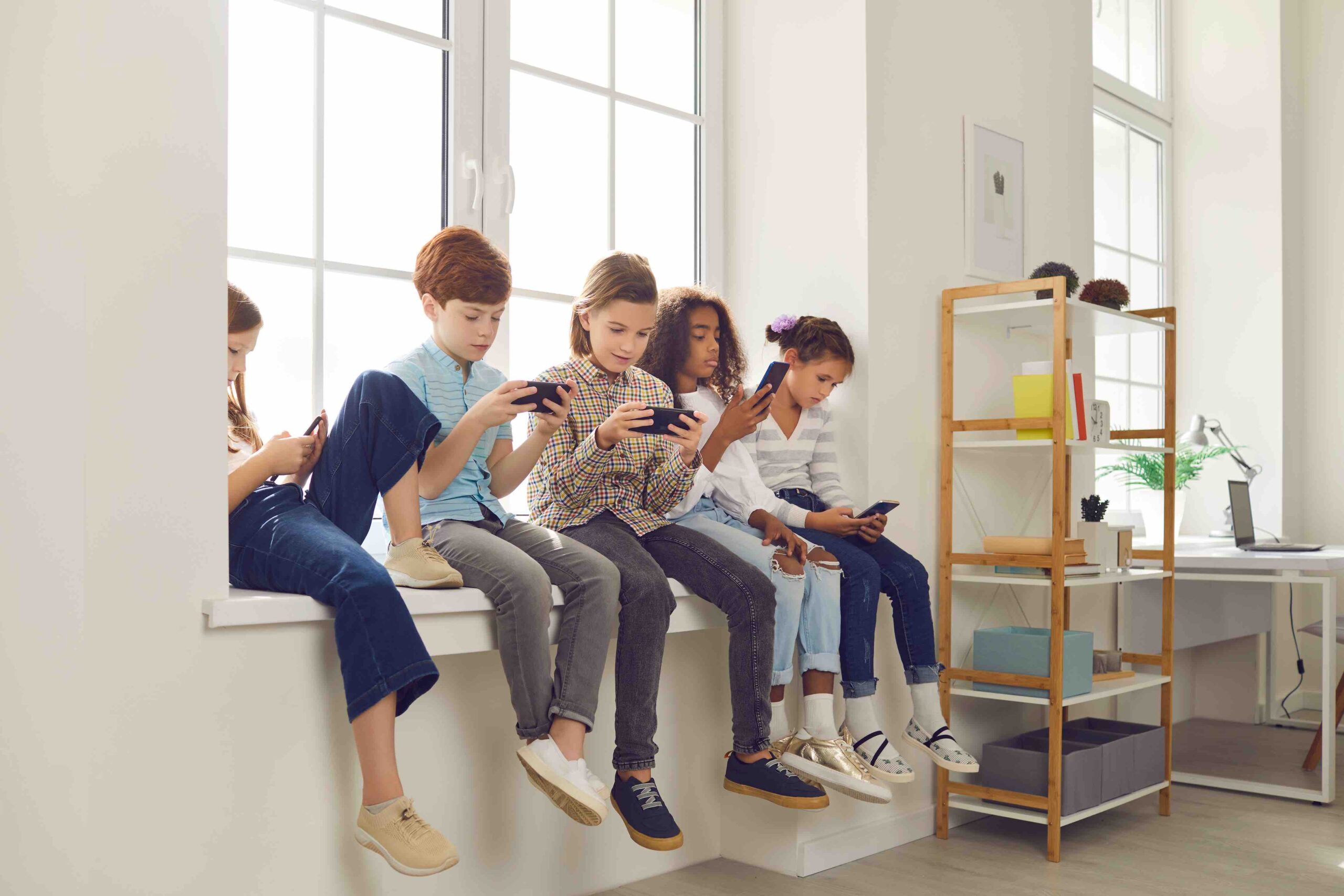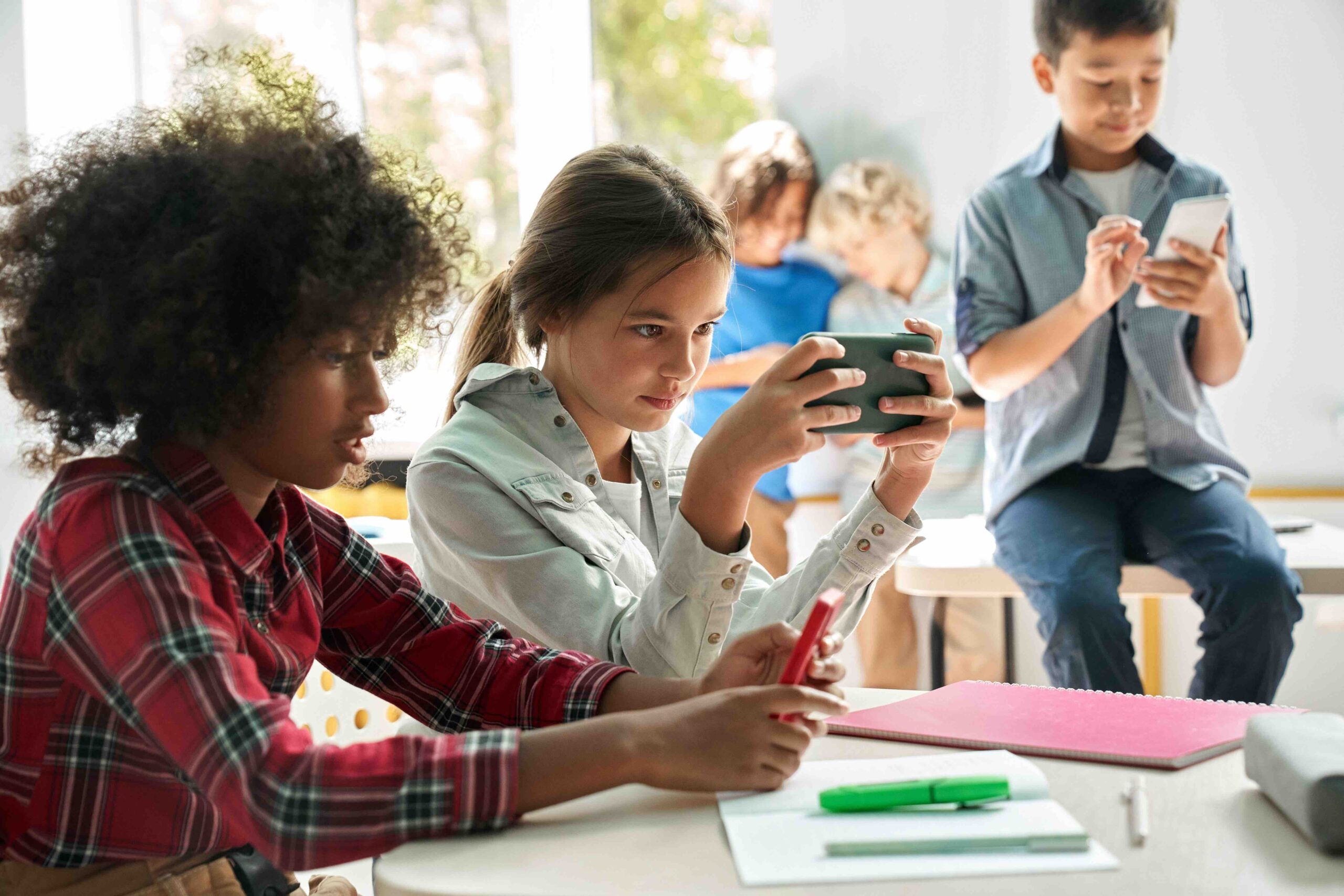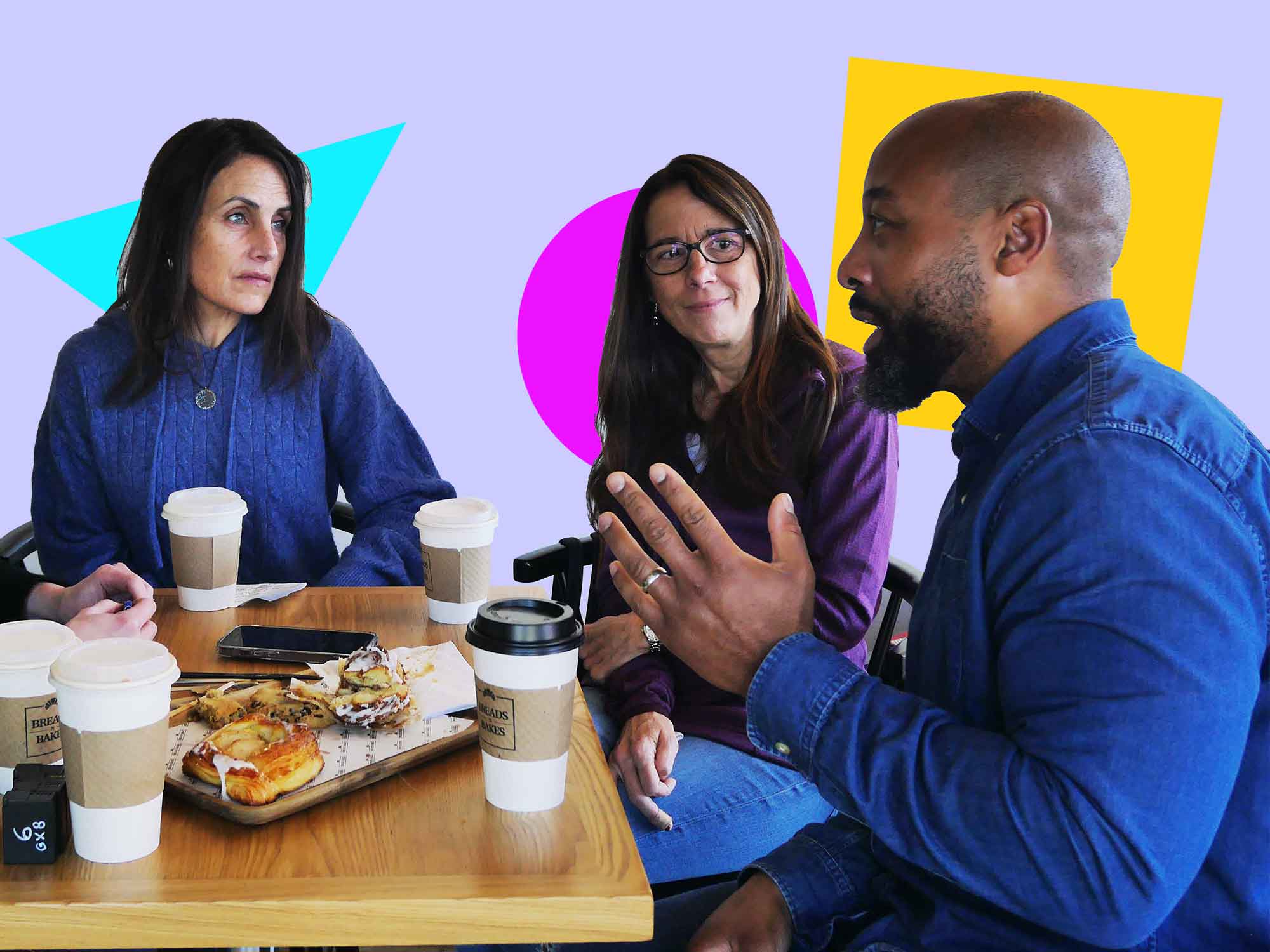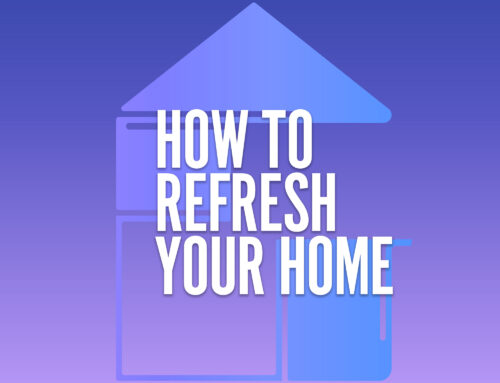In our new series Connecting with Parents, we’re hosting roundtable discussions on parenting topics. For our first conversation, we sat down with three parents at BreadsNBakes in Pound Ridge to discuss social media. Below is an excerpt from our hour-and-a-half conversation.
The parents:
Jane Bendor – Goldens Bridge parent of boys ages 11 and 8
Melinda Canno-Velez – Pound Ridge parent of girls ages 25 and 22, and boys ages 20 and 15
Mike Ransom – Mount Kisco parent of a 15-year-old boy, triplet girls age 12 and an 11-year-old girl
Katonah Connect: How old were your children when you allowed them to have their first social media account?
Mike: My kids got on social media around 10 or 11 years old. My son got on social media when he got his phone, even though we didn’t want him on social media. He was mostly on Instagram and Facebook because a lot of the family is on Facebook. It got to the point where I just had to monitor him because the girls would walk by and listen. I allowed them to get on social media when they were around 10 years old, and their first experience with social media was TikTok.
Melinda: They all got phones as their fifth grade graduation present. There was less social media for my 25 year old than my 15 year old. I don’t monitor their accounts, but I always keep an eye out. I try to give them some freedom, and then I reel them back in if I see a reason to be concerned. My son is very open with me, and he really isn’t that interested in social media – he’s more interested in gaming. But he does go on Instagram and Snapchat.
Jane: My 11 year old does not have a phone. We’ve been more restrictive with our kids, even with screen time. My older son got an iPad when he was 10, but we told him that it’s our iPad, and we’ll give it to him for a certain amount of time. He’s not that interested in things like TikTok, but he does watch videos on YouTube. We don’t allow him to have accounts. We’re just not there yet. We’re not ready to hand that world over to him because we’re scared of that world. You just don’t know what’s out there.
Mike: Yeah, it’s hard. One of the challenges that we’ve had is that my girls are a little bit more mature than my son. But because he’s the oldest, he gets a lot of the things first. The girls have some of the same access, but they’re more mature, and they can handle it, with the exception of my youngest. I keep it away from her because I don’t think she has the same judgment as the other girls, and I don’t think she would use it well. But there are social pressures.
Jane: That’s like one of the big challenges because you want to give them stuff, make them happy and not be ostracized by other kids, but at the same time, you still want to have control. Because once you hand it over, it can lead to anything. It’s not like putting them in front of a television, where they can watch a half-hour show. Even when adults get on their phones, you start looking at one thing, and that leads you to something else. And suddenly so much time has gone by.
Mike: I deleted the Facebook app on my phone because of that.
Melinda: Me too. I really want my kids to watch “The Social Dilemma” because it really explains all of this to a T. The same guy that makes the algorithm says he leaves his phone in the car so he can pay attention to his family. He’s so addicted. The day after I watched it, I deleted my Facebook account.
Mike: I can actually feel my anxiety level rising as I’m scrolling. After a while, I feel like I can’t breathe as well, and I’m always trying to stop, but there’s something that compels me to keep scrolling. They say it can be addicting – it’s the same type of thing that keeps people in the casinos for 10 hours a day.
Melinda: The movie talks about that. And for kids, getting “likes” increases their dopamine, so they’ll get all dressed up before taking a picture. Or they’ll delete pictures that don’t get enough likes.

Katonah Connect: Do you limit screen time for your kids?
Melinda: I did more when they were younger. Obviously, I can’t for the older ones, but I should probably limit it more for my youngest. My rule is that if his schoolwork is done, he can have screen time. But at the end of the night, I think it’s a good idea for all ages that everyone’s phones are plugged in away from their bedroom, and they can get them the next day.
Jane: I keep my kids’ iPads at all times. He must ask me for it when he wants to watch something. And then it’s a matter of making sure everything is done first. But he’s so busy that the desire isn’t even as strong as it was a couple of years ago.
Mike: We do two things at the end of the day: we take away their devices and we shut the internet off to their devices. During the week, electronic time is after dinner, from six o’clock to eight o’clock. Usually, they’ll voluntarily give me the devices because they’re pretty much bricks once we shut off the internet.
But one of the things that I don’t like about social media is the kids’ impulse to criticize everything they see. I recently asked them, ‘When are we going to have a conversation from end to end where you’re not judging somebody? Or you’re not criticizing what this person is wearing or the way that person is talking?’
Jane: One of the things that concerns me is that things are very sensationalized these days. And if they start to go down that road, you may not know what they’re seeing or listening to. It’s a really tough balance.
Melinda: My older daughter and son are into politics, and my 15 year old ends up learning things on TikTok. He’ll be the first one to tell me what’s happening. I think it’s good that he’s passionate and interested in learning, but there’s definitely good and bad information out there.
Jane: It’s hard because you want to protect them, but at the same time, you want them to learn. But you just want to have more control over it, especially because they can watch things that may not necessarily be true or accurate. And then how are these kids supposed to decipher what’s real and what’s not?
Melinda: Right. And as a therapist, I’ve had kids tell me they wanted to learn about something they overheard on the bus. But when they typed it in, they saw very inappropriate videos. They’re mortified and scared, and they don’t want to tell their parents, but they need to get it off their chest.

Katonah Connect: So, let’s talk about some of the benefits of kids having social media.
Melinda: I think gaming and social media really helped many kids socially and emotionally during the pandemic. My son spoke to 10-15 friends a day, whether it was in a chat room or they were gaming together, and it really helped them get through a very difficult time.
Mike: As much as social media can take a hit to your self-esteem, I also think it can also build up your self-esteem. I remember that at a former job, they wanted people to feel more comfortable speaking in public, so they interviewed us on camera. So many of the adults felt so uncomfortable when they watched the video of themselves answering questions. But these kids are doing it all the time. They put videos out there and they do silly dances. They feel very comfortable exposing themselves to so many different people, and that’s a positive thing.

Katonah Connect: We did some research, and here is what the experts say are the positives: socializing, creativity, learning, finding new hobbies or interests, connecting with extended family and joining online groups that create a sense of belonging. Jane, does that help ease any of your concerns?
Jane: Yes, in a way. But I still think there’s a downside, especially for younger kids, like my eight year old. As I said before, I haven’t given my older son a phone yet, but he’s asking for one. The only reason I would hand that to him is so he can stay socially connected.
Melinda: Every family should make the decision that’s right for them. But I work with a middle school girl who isn’t allowed to use social media, and she told me that she always feels so left out and so bored. I also see a college student whose parents won’t allow her to use social media when she’s home for the holidays, but that’s the only way she communicates with her friends. While I’m not saying kids should have free range, they do end up feeling somewhat left out.
Katonah Connect: After having this conversation, have your thoughts or opinions about social media changed?
Mike: I’m a little bit more encouraged. I don’t think there’s a way for me to successfully keep them away from social media, but I feel like I have a lot of wisdom that I share, and I feel like I’m prepared to have those conversations. But I do need to be mindful that the conversations need to happen a little bit sooner.
Melinda: This conversation reaffirmed my belief that talking to others about what’s going on with our children, whether it’s about the Internet or other issues, is extremely helpful. We can learn from each other’s experiences, and it can help us have meaningful discussions with our kids.
Jane: I would say absolutely, in the sense that I need to become more aware. Thank you, everybody, because this has been very informative. This was a really good conversation, so thank you.
This article was published in the January/February 2023 print edition of Katonah Connect.
Gia Miller is an award-winning journalist and the editor-in-chief/co-publisher of Connect to Northern Westchester. She has a magazine journalism degree (yes, that's a real thing) from the University of Georgia and has written for countless national publications, ranging from SELF to The Washington Post. Gia desperately wishes schools still taught grammar. Also, she wants everyone to know they can delete the word "that" from about 90% of their sentences, and there's no such thing as "first annual." When she's not running her media empire, Gia enjoys spending quality time with friends and family, laughing at her crazy dog and listening to a good podcast. She thanks multiple alarms, fermented grapes and her amazing husband for helping her get through each day. Her love languages are food and humor.











